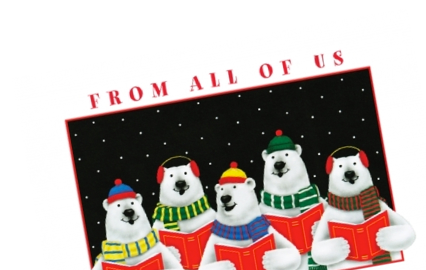Nov 15th 2023
What Does Cordially Invited Mean: Unraveling the Etiquette of Invitations
The term "cordially invited" is often used in various types of invitations, yet its precise meaning may not be immediately clear to everyone. While the phrase undoubtedly conveys a sense of formality and politeness, there is more to it than meets the eye. Understanding the meaning and implications of "cordially invited" can help ensure that you know what to expect when receiving such an invitation and how to respond appropriately.
Being "cordially invited" to an event usually implies that the host extends a warm and sincere welcome to the invited guest. The word "cordially" itself is derived from the Latin word "cordialis," which means heartfelt, and it is used to express a genuine and deep desire for someone's presence at a particular event or gathering. Whether it's a wedding, an anniversary celebration, or a special birthday party, adding "cordially" to an invitation emphasizes the significance of the event and the importance the host places on your attendance.
In addition to its heartfelt connotations, using "cordially invited" in an invitation also establishes a certain level of etiquette and formality. Events that feature this phrase in their invitations often follow specific decorum, requiring guests to dress accordingly and adhere to certain rules or norms. As a result, when you receive an invitation with the words "cordially invited," you can expect a well-organized and sophisticated event that values both warmth and formality.
Exploring The Meaning of Cordially Invited
When we receive an invitation that reads, "You are cordially invited," it's normal to wonder about the specific meaning behind the phrase. While 'cordially' might seem like a simple word, it actually conveys a sense of formality and warmth in an event or invitation.
In everyday language, 'cordial' implies politeness mixed with a touch of friendliness. Invitations that use this term usually relate to more formal events, such as weddings or anniversary celebrations. When you are cordially invited, you can expect the event to have a certain level of formality, and some standards of etiquette might be expected from the attendees.
The addition of the word 'cordially' to an invitation highlights the host's desire for your presence at the event. It adds a layer of enthusiasm and respect without overwhelming the person being invited. This term is particularly useful when inviting acquaintances or coworkers, striking an ideal balance between warmth and formality.
Combining the words 'cordially' and 'invited' demonstrates not just a simple invitation but also a sincere and polite request for your presence. It is an indication that the host values your company at their occasion and would like you to be a part of it.
In summary, when you receive a cordially invited message, it is an indication of the importance and formality of the event. As a rule of thumb, dress appropriately, and be prepared to adhere to any social etiquettes. Enjoy the warmth and sincerity that come with such an invitation, and remember, your gracious presence is what makes the event special for the host.
Cordial Adverbs in The English Language

Cordial adverbs play a significant role in the English language. One such adverb is "cordially," which adds warmth, politeness, and sincerity when used in a sentence. It serves as an adverbial phrase that modifies verbs, adjectives, or other adverbs, providing additional information about the action or state expressed in the sentence.
For instance, when you receive an invitation stating, "You are cordially invited to attend our annual wine-tasting evening," it implies a friendly but formal and polite tone. The use of "cordially" here adds a sense of enthusiasm in the act of inviting, making it more welcoming than a standard invitation.
In addition to invitations, "cordially" can be used to convey politeness and friendliness in other contexts as well. For example, in a conversation, one person might say to another, "I cordially agree with your perspective," or "She welcomed them cordially into her home." These sentences showcase the versatile application of the adverb "cordially" in various situations.
When examining the relationship between cordially as an adverb and the verb it modifies, consider the sentence, "He cordially greeted his guests at the door." Here, "cordially" enhances the verb "greeted," emphasizing the warmth and politeness with which the person greeted his guests.
In summary, the adverb "cordially" enriches the English language by adding a touch of warmth and politeness to sentences. It can be employed in various contexts, such as invitations, agreements, and greetings, making the sentences more engaging and amiable.
Invitation Etiquette and Protocol
In any social gathering or event, a proper invitation sets the tone and creates the initial anticipation. From formal invitations to casual get-togethers, understanding the etiquette behind inviting others makes a difference in ensuring a successful and enjoyable occasion.
When crafting an invitation, clarity is vital. Specify essential details, such as the date, time, location, and dress code if relevant. A well-thought-out invitation also highlights the purpose of the event, whether it's a wedding, a dinner party, or a casual celebration, with a friendly and welcoming approach.
A formal invitation typically implies a higher level of sophistication. Including phrases like "You are cordially invited" emphasizes the host's eagerness to have guests attend the event. This expression conveys enthusiasm and formality, assuring invitees that their presence is both desired and appreciated.
RSVPs are an essential aspect of invitation etiquette. The term "RSVP" stands for "Répondez s'il vous plaît'" in French, translating to, "Please respond" in English. It is a polite way of requesting a reply so that the host can adequately prepare for the party. As a guest, promptly responding to an invitation is crucial, as it displays respect and consideration for the host's efforts.
The host's responsibilities are not limited to issuing invitations but also extend to ensuring a smooth and enjoyable event. Maintain open communication with guests, accommodate any particular needs, and make them feel welcome upon arrival.
Remember, following the etiquette and protocol around invitations contributes to the success and overall enjoyment of any event, for both the host and the guests.
Types of Cordial Invitations
Cordial invitations are a crucial aspect of creating a warm and enthusiastic atmosphere for various types of events. These invitations express genuine goodwill towards the recipient and can be used in a multitude of situations. In this section, we will explore some of the common types of cordial invitations and their purposes.
One popular type of cordial invitation is an in-person invitation. This refers to personally extending an invite to someone, rather than sending it through mail, email, or other means. In-person invitations are a thoughtful way to make someone feel especially welcome and appreciated. These invitations can be used for events such as milestone celebrations, dinner parties, or casual gatherings.
Event cordial invitations are commonly used for special occasions, including retirement parties, wedding ceremonies, and anniversary celebrations. These invitations are often more formal in nature, showcasing the importance of the event being celebrated. By using cordial language, the hosts emphasize their eagerness and desire for the guest's presence at their event.
Another example of a cordial invitation is for a ball. Balls are typically grand, formal affairs where guests dress up and partake in an elegant night of dancing and socializing. In these cases, cordial invitations set the tone for the prestigious nature of the event and create a sense of expectation and excitement.
Retirement cordial invitations are an excellent way to honor a person's career achievements and transition into the next chapter of their life. These invitations are often accompanied by heartfelt messages and a request to join in the celebration of the retiree's accomplishments. The cordial invitation is a way to ensure the retiree feels valued and appreciated by their colleagues, friends, and family.
Finally, celebration cordial invitations can encompass a wide variety of events, including baby showers, housewarming parties, and more. When announcing a joyful occasion, a cordial invitation communicates enthusiasm and a desire to share in the happiness of the moment. These invitations typically include a warm, heartfelt message from the host or hostess, to create a sense of inclusiveness and camaraderie among the guests.
In each of these examples, the use of cordial language ensures a friendly and inviting atmosphere. This approach helps to solidify the significance of the event and conveys the host's genuine desire for the guest's attendance.
The Cultural and Social Context of Cordial Invitations
Cordial invitations play a significant role in various cultures and social settings. They symbolize warmth, hospitality, and respect towards the person being invited to the gathering or event. Essentially, these invitations aim to convey a friendly and wholehearted desire for the invitee's presence.
In the context of family and personal relationships, a mother may cordially invite her daughter to a milestone birthday celebration, or a man could extend a cordial invitation to his relatives for a family reunion. The language used in the invitation reflects the host's sincerity and appreciation for the guests, emphasizing the importance of maintaining close ties and nurturing relationships.
Cordiality is not limited to invitations among close family or friends; it may also be extended to acquaintances, colleagues, and even strangers for more formal gatherings. For example, individuals hosting professional events or conferences often use "cordially invited" to show politeness and convey a sense of elevated importance to the event.
Cultural nuances also play a role in the significance of cordial invitations. In some cultures, individuals place immense importance on the minute details of the invitation wording, believing that formal, cordially-worded invitations reflect respect, tradition, and proper etiquette. In these instances, the recipient might feel more inclined to attend the event, as they appreciate the host's thoughtfulness and gesture of hospitality.
While the importance of cordiality may vary in different social circles and cultures, extending a cordial invitation is a universally recognized way of showing respect and a genuine desire for guests' presence. Ultimately, cordially inviting someone emphasizes the host's thoughtfulness, goodwill, and openness, fostering deeper connections and meaningful social exchanges.
Sources and Citations
In the realm of language and etiquette, understanding phrases like "cordially invited" can sometimes be perplexing. Diving into reputable sources, such as corpora, and academic dictionaries like the Cambridge Dictionary, can provide clarity and context.
These sources published by esteemed organizations like the Cambridge University Press are reliable for accurate information. Licensors, who form a part of these organizations, play a crucial role in ensuring that the information is authentic and comes from multiple legitimate sources.
For instance, the term "cordially invited" typically means a polite and warm invitation extended to someone. It conveys friendliness and enthusiasm while maintaining a sense of formality. The phrase is often used in invitations to events, weddings, or any social gatherings. Exploring sources like the Cambridge Dictionary can give precise meanings and help comprehend the context in which these phrases are used.
Additionally, referring to diverse corpora can provide valuable insights into how the phrase is employed in real-life situations. Corpora are large collections of written and spoken texts, which can offer a broader perspective on the usage, variations, and the intricacies of a phrase like "cordially invited."
In summary, extracting information and understanding phrases such as "cordially invited" is made easier and more reliable with the help of dependable sources like the Cambridge Dictionary, corpora, and Cambridge University Press publications. The collaboration of licensors and academic institutions ensures the authenticity of the information, making it user-friendly and highly beneficial for those seeking a deeper understanding of the English language.
Frequently Asked Questions
What is the difference between cordially and warmly invited?
While both "cordially" and "warmly" convey a sense of genuine desire for the guest's presence, there is a slight difference between the two. "Cordially invited" suggests a respectful and heartfelt invitation, as the term "cordially" originates from the Latin root word for "heart". On the other hand, "warmly invited" implies a more informal and friendly invitation with a cozy atmosphere.
How to properly use 'cordially' in an invitation?
Using "cordially" in an invitation is quite simple. Typically, it's placed at the beginning of the sentence, such as "You are cordially invited to [event name]." This format highlights the polite and friendly intent of the invitation, ensuring the guest feels welcomed and respected.
What can be used as an alternative to 'cordially invited'?
If you want to use a different phrase than "cordially invited," you might consider alternatives like "warmly invited," "graciously invited," or "sincerely invited." These alternatives still convey a sense of hospitality and genuine desire for the guest's attendance.
How does cordially invited differ from formally invited?
"Cordially invited" and "formally invited" both imply a certain level of formality, but their focus is different. While "cordially invited" emphasizes the heartfelt and respectful nature of the invitation, "formally invited" highlights the event's formal tone, suggesting a more structured and traditional setting. It's worth noting that in many cases, cordially invited implies a formal event, so the terms can sometimes be used interchangeably.
What is the etiquette for cordially inviting someone?
When cordially inviting someone, it's essential to maintain a polite tone and be clear and concise with the event details. Include the event's purpose, date, time, venue, and any dress code requirements. If RSVP is necessary, provide a deadline and contact information. Lastly, personalize the invitation to make the guest feel valued and respected.
Can 'cordially invited' be used for both formal and informal events?
Although "cordially invited" typically implies a formal event, it's possible to use the phrase for informal events as well. The key is to provide context within the invitation, so the guest understands the nature of the event. For less formal gatherings, consider using alternative phrases like "warmly invited" or "happily invited" to create a more relaxed atmosphere.


 Business
Business
 Personalized
Personalized
 Holiday
Holiday
 Customer
Customer
 Bulk
Bulk
 Birthday
Birthday
 Thank You
Thank You
 Anniversary
Anniversary
 Sympathy
Sympathy
 Retirement
Retirement
 Christmas
Christmas
 Thanksgiving
Thanksgiving
 New Year
New Year
 Hanukkah
Hanukkah
 Rosh Hashanah
Rosh Hashanah
 Appreciation
Appreciation Merry Christmas
Merry Christmas Happy Holidays
Happy Holidays Seasons Greetings
Seasons Greetings Funny Cards
Funny Cards Religious
Religious Peace
Peace Patriotic
Patriotic Accounting
Accounting Finance
Finance Photo Cards
Photo Cards Foil Cards
Foil Cards Laser Cut Cards
Laser Cut Cards Die Cut Cards
Die Cut Cards Front Imprint
Front Imprint Recycled Cards
Recycled Cards New York
New York San Francisco
San Francisco Chicago
Chicago Los Angeles
Los Angeles Houston
Houston By Animal
By Animal Christmas Tree
Christmas Tree Western/Southwestern
Western/Southwestern Tropical/Beach
Tropical/Beach Winter Scenes
Winter Scenes Budget Cards
Budget Cards Legal
Legal Construction
Construction Real Estate
Real Estate Trucking
Trucking Accounting
Accounting Holiday Phrases
Holiday Phrases







 Fully Custom
Fully Custom  Friendly
Friendly A portion of every card purchased is donated to charity.
A portion of every card purchased is donated to charity.
 Proudly Made
Proudly Made